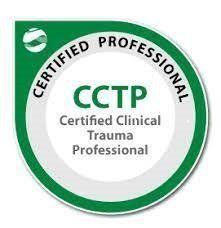AFTER BETRAYAL: HOW TO BE AWARE OF RELATED PTSD SYMPTOMS
Does it seem like your life after betrayal has been turned upside down?
You don’t feel like yourself but aren’t quite sure what’s going on.
When someone close to you betrays your trust, it can be traumatic. It can leave you with an array of both physical and emotional symptoms much like people experience after having faced a life-threatening situation.
These symptoms reflect a mental health condition known as PTSD (post-traumatic stress disorder).
Commonly pegged as the battlefield that continues after war, it’s no longer dedicated strictly to the military. PTSD can afflict anyone recovering from a traumatic event—even you.
How can you know if you may be experiencing PTSD due to betrayal?
Start Slowly
After betrayal, wrapping your head around all that you’ve been through can be immensely difficult. Still, do your best to examine your current condition. It will probably serve you as a welcomed distraction.
Start slowly and start with the easiest to identify—your body. Your physical symptoms are tangible.
In fact, they’ll probably stick out to you like a sore thumb. You can start with keeping a journal of how you feel from day to day. Doing this will help you identify any symptoms that could be related to your traumatic experience.
Physical Symptoms
Some common physical symptoms related to PTSD include:
- Insomnia or nightmares (often about details of the betrayal)
- Chronic upset stomach
- Tightness or burning in chest
- Muscle aches
- Headaches or migraines
- General feeling of pain throughout body
- Changes in appetite (increase or loss)
Also, I should categorize substance abuse on this list. Some people can easily overlook it as a socially acceptable way to cope. Take stock in what you’re putting into your body. For instance, are you drinking more alcohol or taking more pain pills than you were before the betrayal? Are illegal drugs now a part of your life?
It’s important to remember that the entirety of who you are—body, soul, and mind—work closely together. When one part of you is off-kilter, the rest of you will reflect this imbalance.
In short, paying close attention to your body is a reliable way to gauge what’s going on a little deeper inside.
Emotional Symptoms
After betrayal, your emotions might feel shattered. It’s safe to say that you have a broken heart. Experiencing PTSD symptoms because of a broken heart might seem far-fetched. Yet, the two are more closely related than you may know.
Feelings of anger, sadness, and grief are normal after betrayal. Though, PTSD brings on even more intense feelings.
Such feelings include:
- Hopelessness
- Loss of interest in things you used to enjoy
- Depression
- Prolonged sadness
- Feelings of extreme mistrust
- Anxiety or panic attacks
- Emptiness or numbness
It can seem difficult to tell the difference between PTSD and general upset from learning of the betrayal. One important indicator that you’re dealing with more complex emotions is the length of time they stick around.
Although highly unpleasant, the typical emotions you feel after betrayal tend to fade away as your heart heals. When PTSD is at work, you don’t find a reprieve in the fading. In short, your negative emotions don’t fade away when you suffer from PTSD.
Mental Symptoms
Like mentioned before, your world could feel completely upside down after learning of the betrayal. You may have lost trust in someone you previously thought you could trust implicitly. Unfortunately, something like this doesn’t leave your mind and thoughts untouched.
After betrayal, it’s normal to have a negative perception. Like emotional pain, this too should gradually fade away as you recover. PTSD doesn’t let go that easily, though.
Following are some symptoms to be aware of that negatively affect your mind. Again, watch out for them over a longer period of time (at least a month and often longer).
- Panic attacks
- Fearful of the world around you
- Highly distracted
- Unable to focus at work, home, or school
- Not able to function socially like your pre-betrayal self
- Suicidal thoughts
- Paranoia or hypervigilance
If you’ve identified PTSD symptoms within yourself as you read this post, then it’s time to seek professional help. PTSD might seem incredibly intimidating because of stories you’ve heard on the news. The truth is that it is a big deal, but it’s not so big a deal that a professional therapist can’t help you through it.
Life after betrayal can bring an onslaught of complex emotions. You can recover and heal. Contact a trusted therapist to help you reclaim your life.













